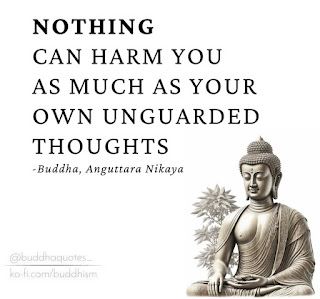The decline of Buddhism in India is a complex historical issue with multiple factors contributing to its gradual reduction in prominence over the centuries. Here's a broad overview of some key factors:
Brahmanical Revival and the Rise of Bhakti Movement: The resurgence of Hinduism, especially through the Bhakti movement, which emphasized personal devotion to gods and goddesses, played a significant role in the decline of Buddhism in India. The Bhakti movement was appealing because it did not discriminate against individuals based on caste and offered a more personal and emotional form of spirituality compared to the philosophical and monastic traditions of Buddhism.
Patronage and Political Support: Buddhism historically thrived in India under the patronage of powerful emperors like Ashoka and the Kushans. However, as these dynasties fell and new empires arose, patronage often shifted towards Hinduism and Jainism. The Gupta Empire (4th to 6th centuries CE), for instance, is known for its Hindu revivalism, which overshadowed Buddhism. Without significant patronage, Buddhist monasteries and educational institutions faced decline.
Muslim Invasions and the Destruction of Monastic Centers: Starting in the 12th century, parts of India were invaded by Muslim armies. Many Buddhist monasteries, including the famous Nalanda University, were destroyed during these invasions. The loss of these educational centers greatly impacted the transmission of Buddhist teachings and practices.
Assimilation into Hinduism: Over time, many Buddhist practices and deities were absorbed into Hinduism. For example, the Buddha was incorporated into the Hindu pantheon as an avatar of Vishnu, which blurred the lines between the two traditions for many people.
Decline in Monastic Tradition and Scholasticism: Buddhism in India was largely sustained by a complex monastic system and a strong tradition of scholasticism. As patronage dwindled and educational institutions fell, the monastic system that underpinned Buddhist philosophical and spiritual life began to decline as well.
Economic Factors: The land grant system, which was an economic foundation for religious institutions, began to favor Brahmins and Hindu monasteries. Buddhist monasteries gradually lost economic support and thus could not sustain their communities.
Lack of Reform and Adaptation: While other religions underwent significant reforms or adaptations over time, Buddhism in India remained relatively rigid. Its monastic focus may have made it less accessible or less appealing to the broader population, especially compared to the more flexible and adaptive practices in Hinduism and the emotionally appealing Bhakti tradition.
Internal Issues within Buddhism: Buddhism in India had split into several schools and sects, some of which had divergent practices and philosophies. This internal fragmentation might have weakened its ability to present a united and appealing front to potential followers.
It's important to note that Buddhism did not entirely vanish from India. There have always been pockets of Buddhist presence throughout history, and in modern times, there has been a revival of interest in Buddhism, partly due to the efforts of figures like Dr. B. R. Ambedkar, who converted to Buddhism and encouraged others, particularly those from the Dalit community, to do the same as a means of social liberation.
Understanding the decline of Buddhism in India requires a nuanced consideration of these and other factors, as well as an understanding of the broader socio-political context of Indian history over the centuries.

